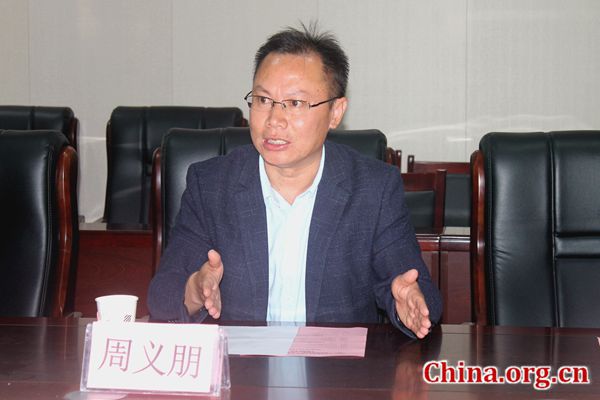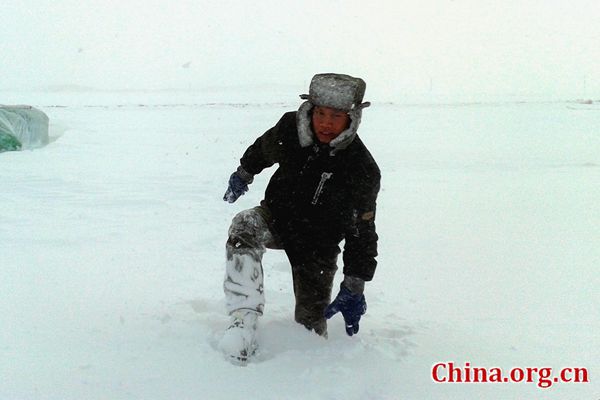University professor devotes life to uranium mining research
- By Mi Xingang
 0 Comment(s)
0 Comment(s) Print
Print E-mail China.org.cn, November 10, 2019
E-mail China.org.cn, November 10, 2019
"Since I have chosen uranium mining research as my career, it's my responsibility to focus on it and do it well," said Zhou Yipeng, a 45-year-old associate professor from the East China University of Technology in south China's Nanchang City, Jiangxi Province, during an interview with China.org.cn on October 25. Zhou has devoted himself to uranium mining testing and research under extreme environmental conditions in the Xinjiang Uygur Autonomous Region for 13 years.

In 2004, Zhou enrolled in the East China University of Technology as a postgraduate student focusing on environmental engineering. In 2006, he took part in an uranium in situ leaching project supervised by his tutor and became engaged in research at the Gobi desert test site in the Turpan Basin. In 2008, a new project in microorganism in situ uranium mining was launched in the Yili Basin, and Zhou volunteered for that as well.
In barren fields whipped by raging sandstorms during the frigid cold of winter and the scorching heat of summer, Zhou overcame one difficulty after another and even experienced several life-threatening encounters. According to him, once when he tried to turn off the electric brakes at the pump house, which was leaking water, he almost suffered an electric shock. In another incident during winter, which he recalls to this day with a degree of fear, he suddenly lost control of his vehicle as he was driving on a snow-covered slope. Fortunately, he managed to stop his vehicle before it fell down the cliff.
During his daily research and tests, Zhou had to deal with various trivial issues, including preparing test materials, equipment maintenance, process design, funds planning, system construction, test operations, monitoring and control. He usually worked over 15 hours a day, often neglecting his meals and sleep. Apart from his core duties, he also spent time guiding his students and young technicians on conducting tests and writing papers, earning their respect and admiration.

As for the global problem of high-salinity sandstone-type uranium in-situ leaching, Zhou and his team developed the technology of desalination in-situ leaching with less reagent and put it into industrial application. "This technology helped to realize the utilization of precious uranium resources which had previously been deemed unexploitable," Zhou related with pride.
In the area of mining ultra-low grade uranium ores, he created the technology of microorganism in situ leaching and led the design and construction of China's first industrial application of this technology, which was also an unprecedented global success. His technology helped create over 10 million yuan in revenue for enterprises and improved the utilization rate of complicated uranium resources in China.
To better focus on his research at the test site, Zhou had to spend over nine months each year in Xinjiang and was away from his family in Nanchang for long periods of time. "I am not a qualified husband and father," Zhou expressed with regret. "My daughter is now a high school student, but I wasn't with her much during her growing up years."
Right now Zhou is committed to the new research on underground microorganism in-situ leaching of uranium, which has not even been reported on around the world. Considering the importance of nuclear resources, he said, "I am willing to contribute to this cause. It's enough for me to do this one thing well in my lifetime."






Go to Forum >>0 Comment(s)